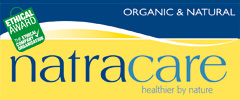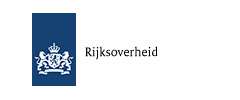All salads tested in Germany contain pesticide residues
except the organic salads, which had no pesticides, says Greenpeace Germany Pesticide Report
15.12.2004 |Magriet Samwel

No pesticide-free conventional grown salads were found
No pesticides in organic grown salads
Greenpeace Germany analysed pesticides in saladsIn November Greenpeace Germany bought 23 salads in different German supermarkets, in different towns and analyzed them on pesticide residues.
The results were shocking: none of the 21 conventional grown salads were free from pesticide residues. Twenty-four percent of the samples reached or exceeded the approved limit for pesticide residues. They found a real pesticide cocktail with up to eight different substances in one sample.
The two organically grown salads were free of pesticide residues. The tested salads were produced in Belgium, Germany, France, Italy and the Netherlands. Far too high concentrations of the pesticides Deltametrin, Diphenyl, Diflubenzuron, Ethofenprox and Iprodion, which are partly carcinogen and hormone disruptors, were found.
Not only salads are contaminated
Salads are not the only conventional grown agricultural products, which are usually contaminated with pesticide residues. In 2004 the German food control authority (Chemisches und Veterinäruntersuchungsamt) in Stuttgart looked at 133 samples of raisins for pesticide residues. In 121 (91%) of the samples 17 different pesticides were detected. In 20 percent of the samples the limit was exceeded.Also conventional grown strawberries, paprika or tomatoes are known for their frequent pesticide contamination. Cocktails from 14 to 16 different substances were found in some samples. In 31 percent of the samples more then one substance was found.
Fruits and vegetables, which are organically grown, are in principle pesticide –free. In approximately in 1-5 percent of the samples are very low traces of pesticides detectable, which are mostly blown over from conventional cultivated fields.
Fruits and vegetables have by law different pesticide limits, which are mostly much higher then the pesticide limit for drinking water or baby food.
Another fact is, that the legislation estimated no limit for the sum of pesticide concentration or for the number of active substances in vegetables and fruits.
Actually legislation does not protect the consumer
The existing regulation on pesticide residues in food does not protect the consumer sufficient against the intake of these toxic substances. Demanded is a legislation, which allows no more then 0,01mg/kg pesticide (per active substance) in fruits and vegetables. This is the valid limit for pesticides in baby food. In addition a limit for the total sum of residues should be fixed.Regarding the pesticide contamination of conventional grown fruits and vegetables are these products at least for pregnant women, babies and children not to prefer.
To be safe eat organically grown food.

































